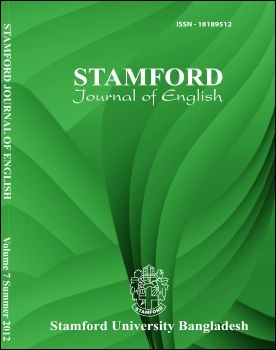Classroom Code Switching of English Language Teachers at Tertiary Level: A Bangladeshi Perspective
DOI:
https://doi.org/10.3329/sje.v7i0.14462Keywords:
Classroom Code, Switching, Tertiary Level, PerspectiveAbstract
Classroom code switching is a common scenario in many multi lingual and multicultural classes. In a monolingual country like Bangladesh, classroom code switching has some distinctive attributes. As a part of the global transformation in the methods and techniques of English language teaching, we need to consider classroom code switching as a fact which cannot be ignored in any way especially in a country like Bangladesh where English is taught as a foreign language. In most of the cases Bangladeshi students tend to switch codes, but it is also common in teachers discourse. This paper aims to focus on the reasons for teachers code switching and the attitude of the teachers and students towards classroom code switching. A survey was conducted for data collection where two different sets of questionnaires were used for teachers and students. 20 English language teachers and 37 undergrad students from different universities participated in the survey. The findings of the survey result in identifying the reasons for teachers code switching like ease of communication, explanation, maintaining discipline in the classroom, translation of the unknown terms etc. On the other hand, although many teachers consider that they should not switch codes in the class room, students possess a positive attitude towards it.
DOI: http://dx.doi.org/10.3329/sje.v7i0.14462
Stamford Journal of English; Volume 7; Page 40-61
Downloads
1264
3553

